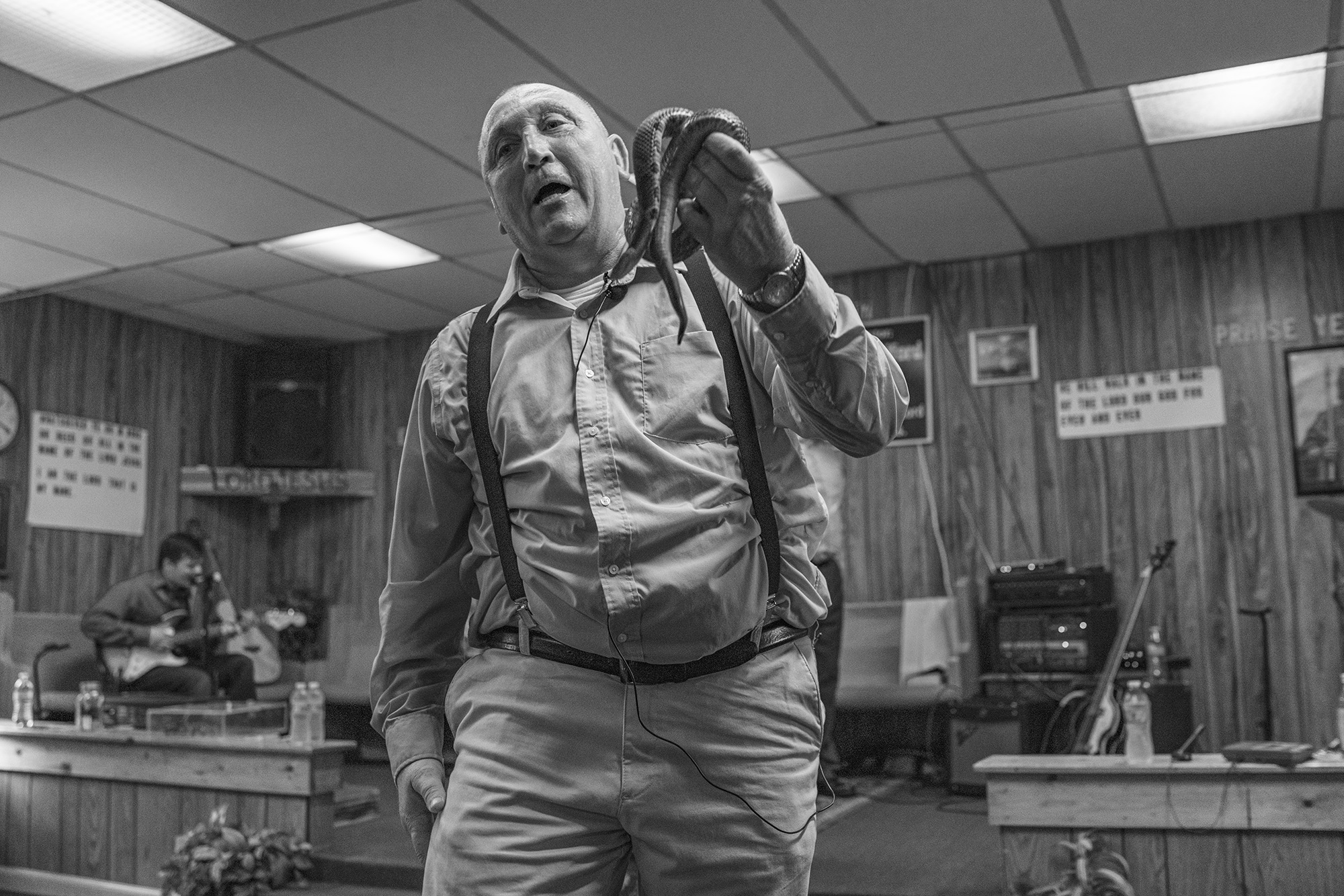Robert LeBlanc has a knack for capturing the fringes of the USA. For his last project, he did so in painstaking detail, travelling from state to state and settling into the deepest recesses of the country for months at a time, observing towns and communities with little more than a car and a camera in his possession. The resulting book, A New America, which we featured earlier this year, took in strip clubs, cowboy ranches, forest fires, funfairs, AI sex doll factories, drag racing and, perhaps most strikingly of all, snake-handling church congregations. Now, a new book from Robert, Gloryland, gives a closer look at the latter mentioned churches.
The House of the Lord Jesus is a small church in a town of little more than 300 in West Virginia. Presided over by pastor Chris Wolford, outwardly, the building looks no different to other Christian churches found in the region. Inside, however, the sound of rattlesnake-rattling often fills the air.
“I was doing some research on these churches and at the time, travelling around in the Appalachian area,” Robert says, referring to a region that stretches from the Blue Ridge Mountains of Virginia southwest to the Great Smoky Mountains. West Virginia is the only state in the USA where snake handling isn’t outlawed (though, of course, many still observe the practice in other states illegally). “I found Pastor Chris, and we started talking for a couple of months. I attended a service and was instantly hooked. I’ve never had an opportunity to attend church in this forum; it’s such a magical and mystic part of a religion that’s from old America, which is now becoming extinct.”
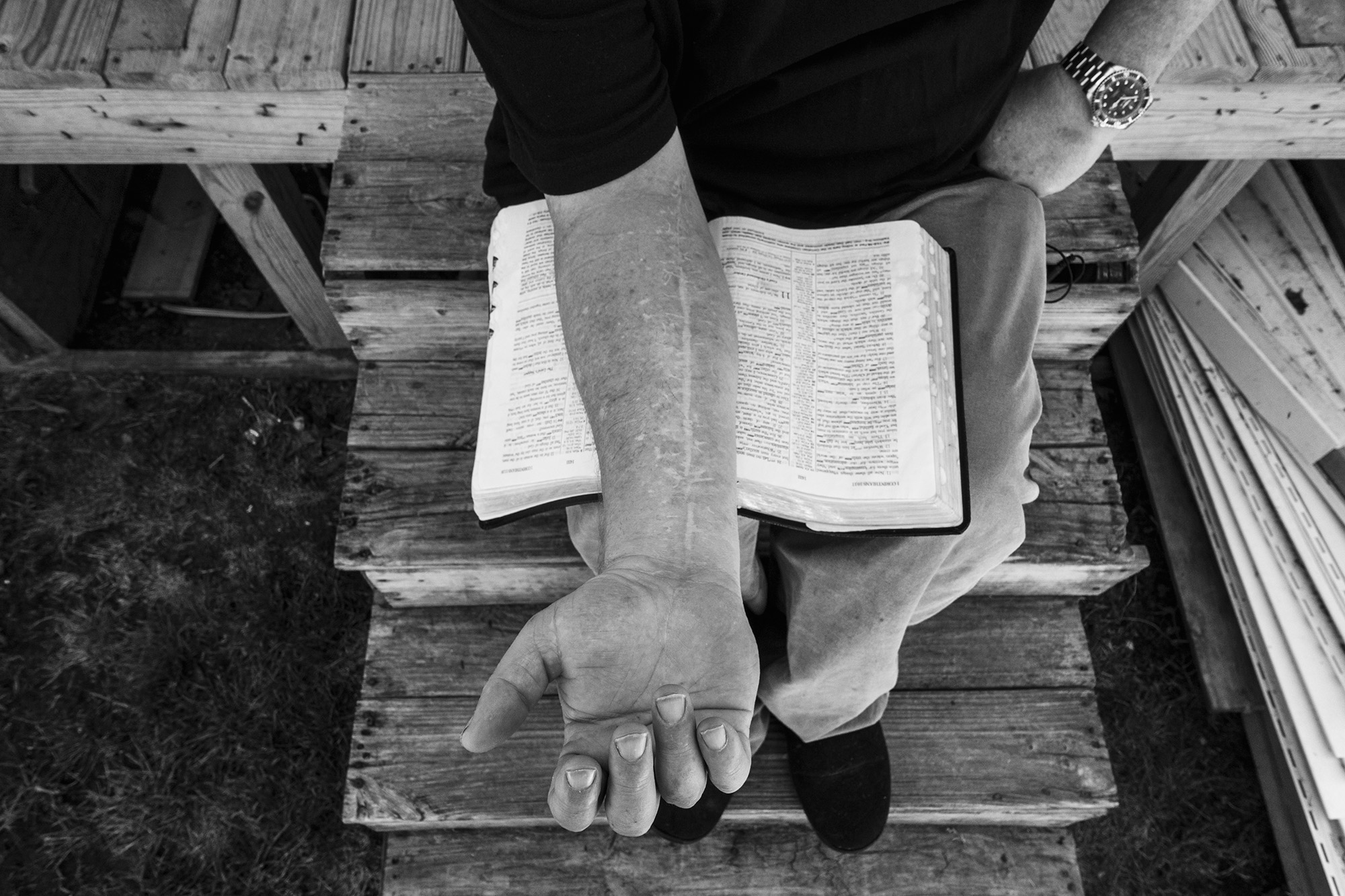
The Holiness movement began with a series of Methodist revivals in the USA in the 1860s. “Holiness is a smaller group within the Pentecostal experience, which included speaking in tongues to indicate an individual’s ‘baptism by the Holy Spirit’, handling serpents, handling fire, drinking poison, healing, and casting out devils,” Robert explains. These practices arise from chapters in the Gospel of Mark, one of which states: “They shall take up serpents; and if they drink any deadly thing, it shall not hurt them; they shall lay hands on the sick, and they shall recover.”
“I was always afraid of someone getting bit,” Robert says. “You become close with everyone because of it being such a small congregation, when you see someone handling a serpent, you just become very worried.” Deaths aren’t uncommon. Framing the pulpit of The House of the Lord Jesus are two photos of Chris’s late brother, Randy, who died by a rattlesnake bite nine years ago. His father, Mack, also met the same fate. Despite these losses, it remains central to the family’s faith.
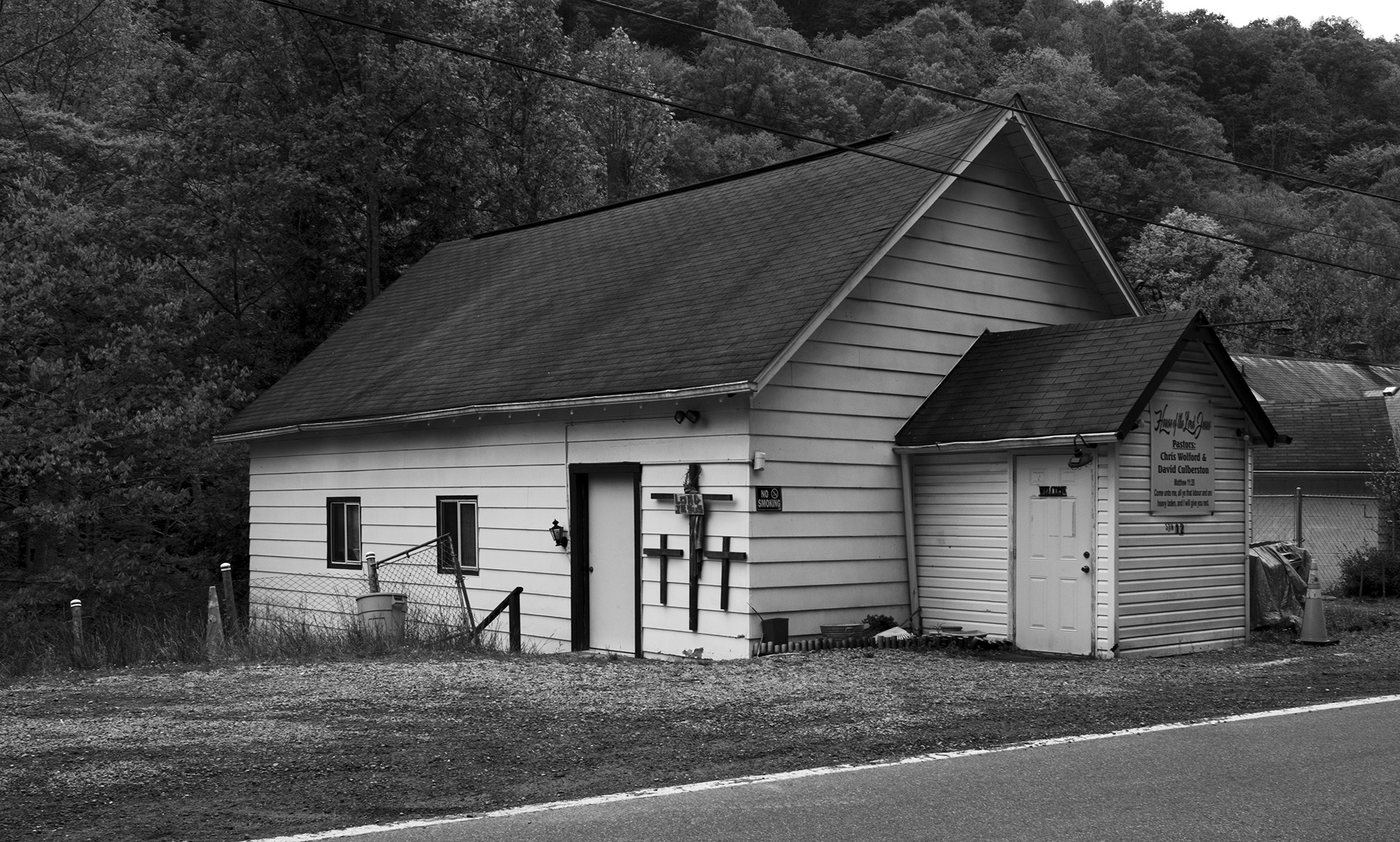
Despite the extreme nature of their church, Robert feels nothing but love for the community that he was invited into and allowed to photograph. And, as a result, his black-and-white images do not sensationalise their story or force any narrative that does not exist. “Through these years, we have gotten close, and they have shown me nothing but love and compassion,” he says. “It’s a very powerful experience going to one of their services and witnessing faith in such a devout way, there is loss and death within serpent-handling churches, so being able to be welcome within the church was amazing.”
As for the image from the book he considers most special, it finds Pastor Chris not holding a snake, but instead reading the bible in a small creek. “I love that his presence is so strong and powerful while holding the bible. I made a point to photograph him outside the church and bring the elements of the mountains, because serpent-handling is so deeply rooted in the Appalachian area.”
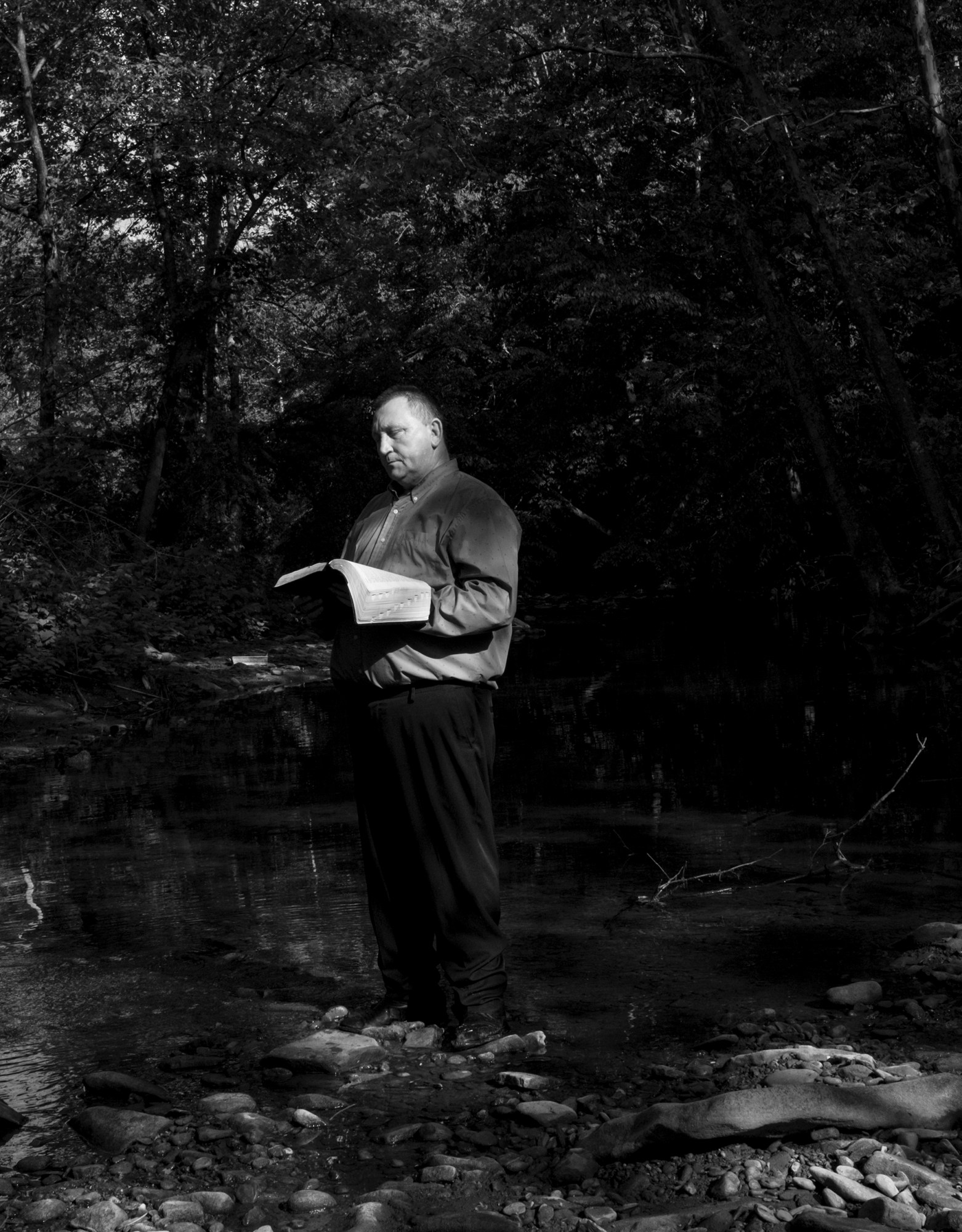
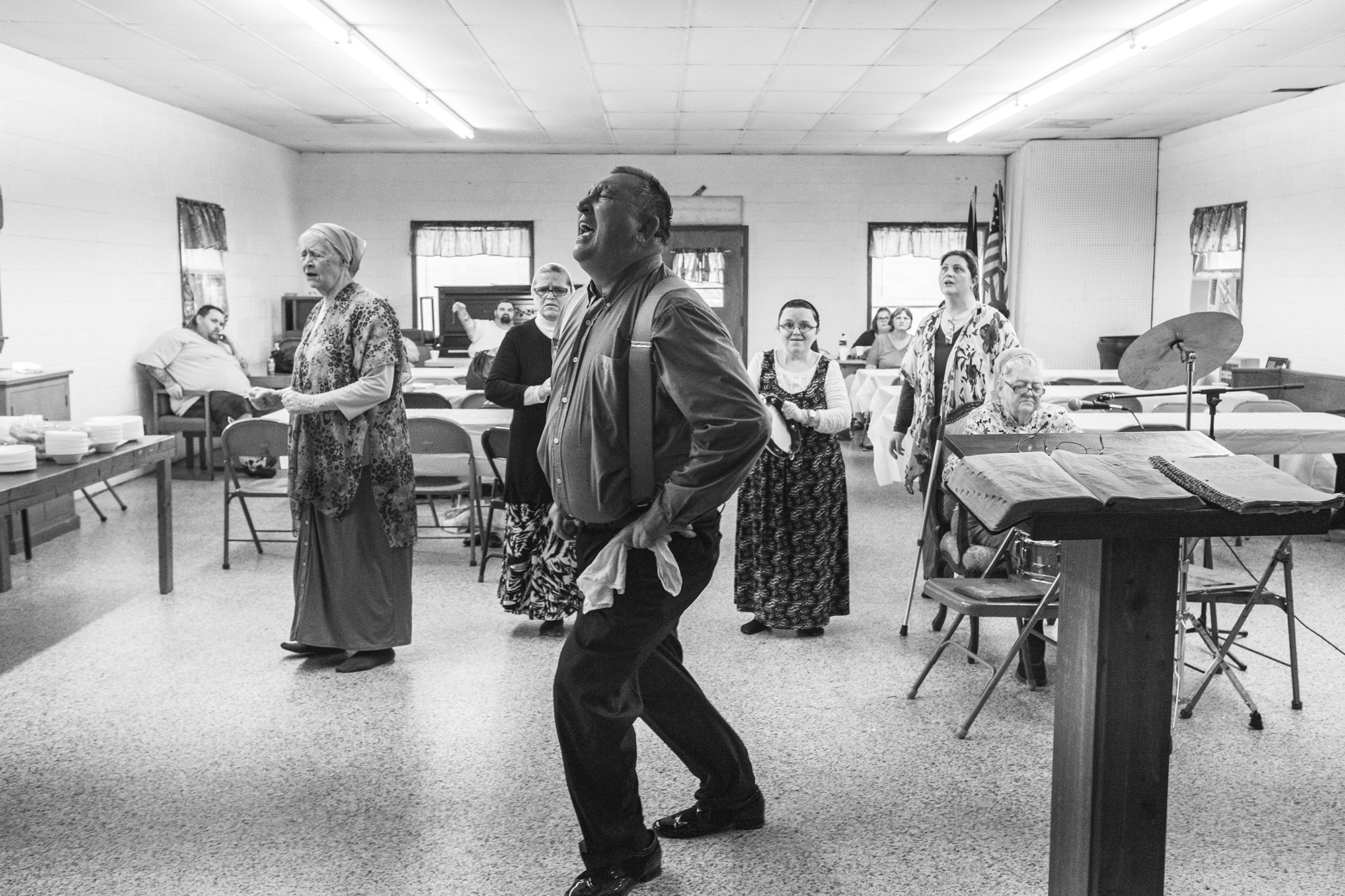
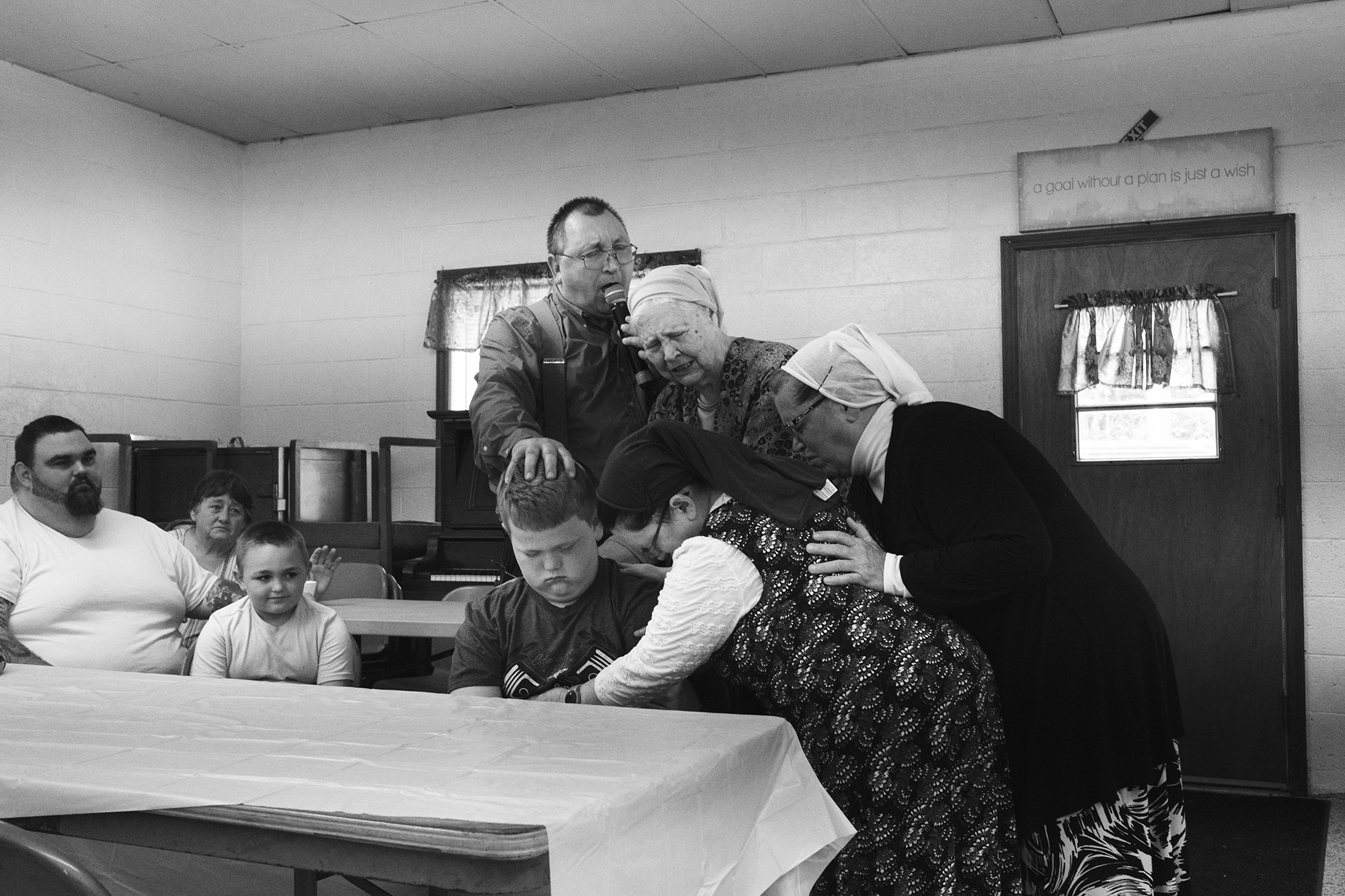
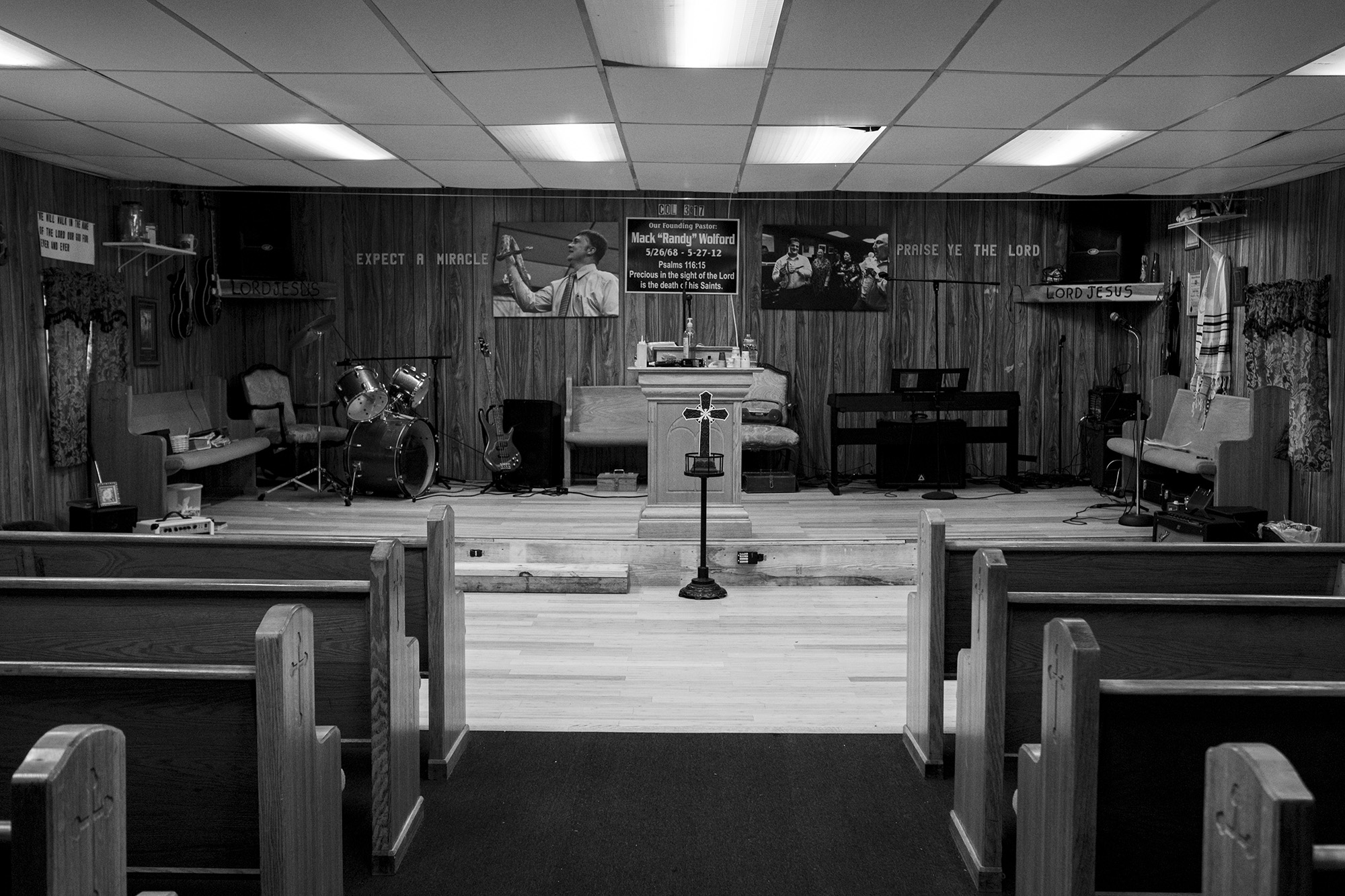
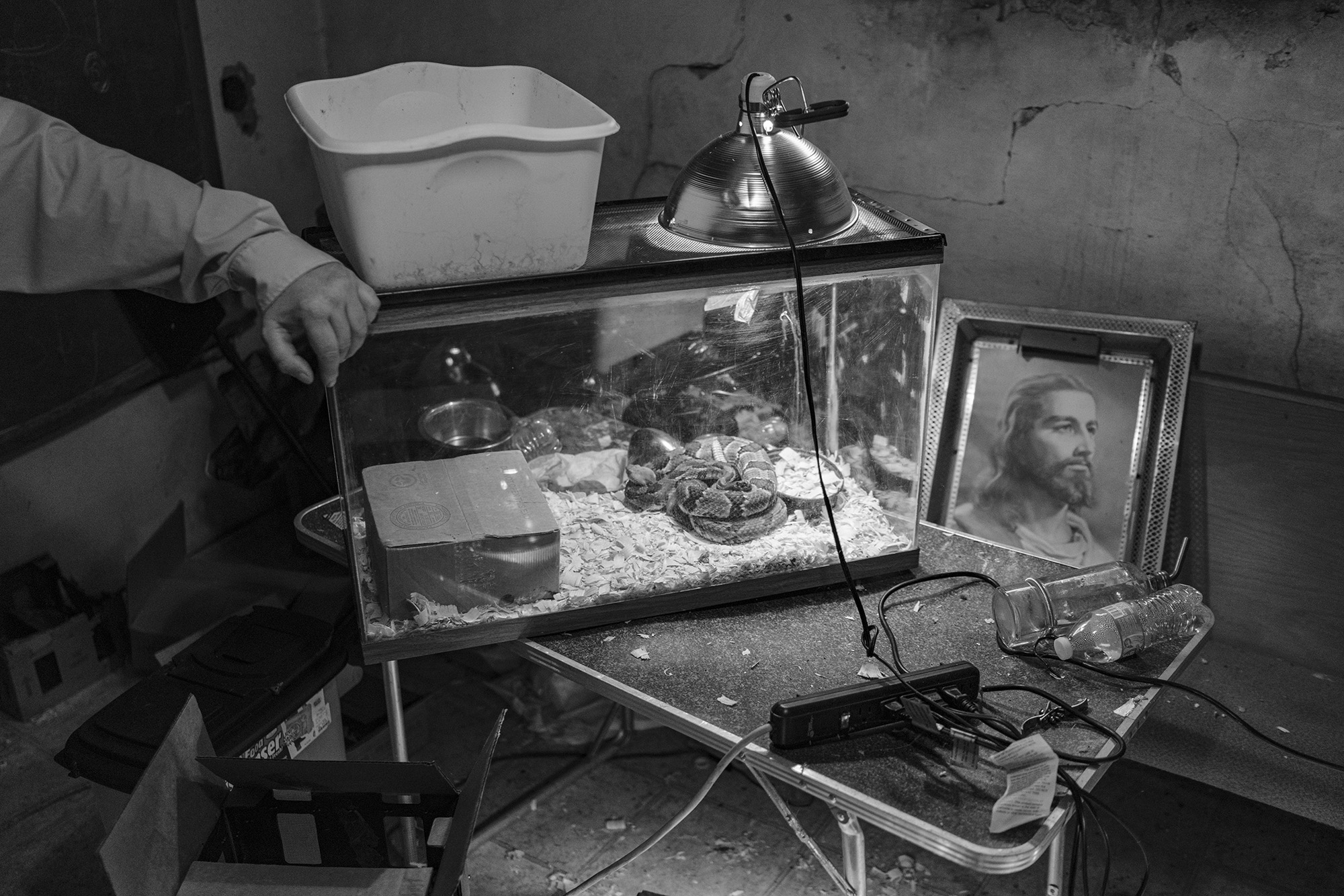
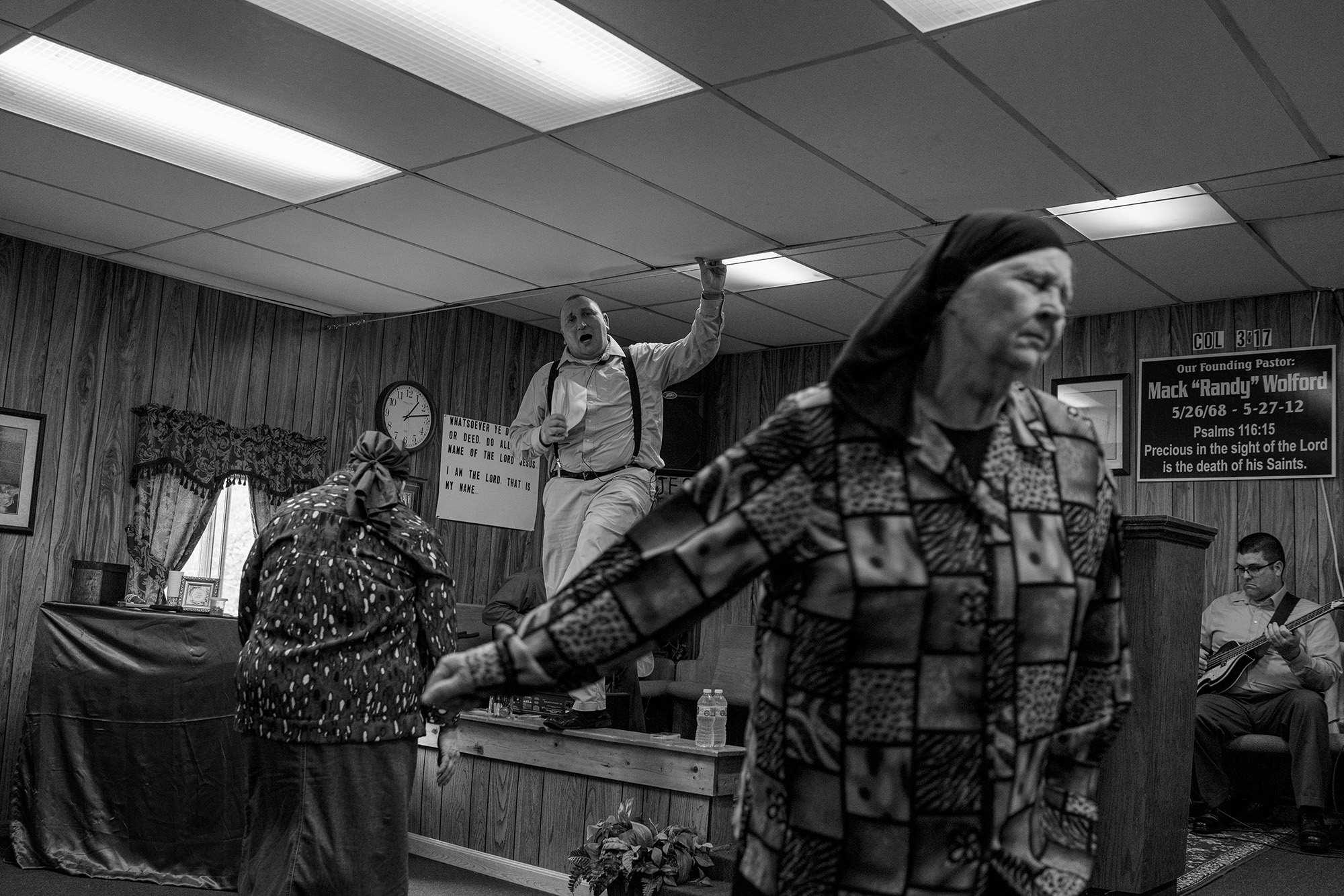
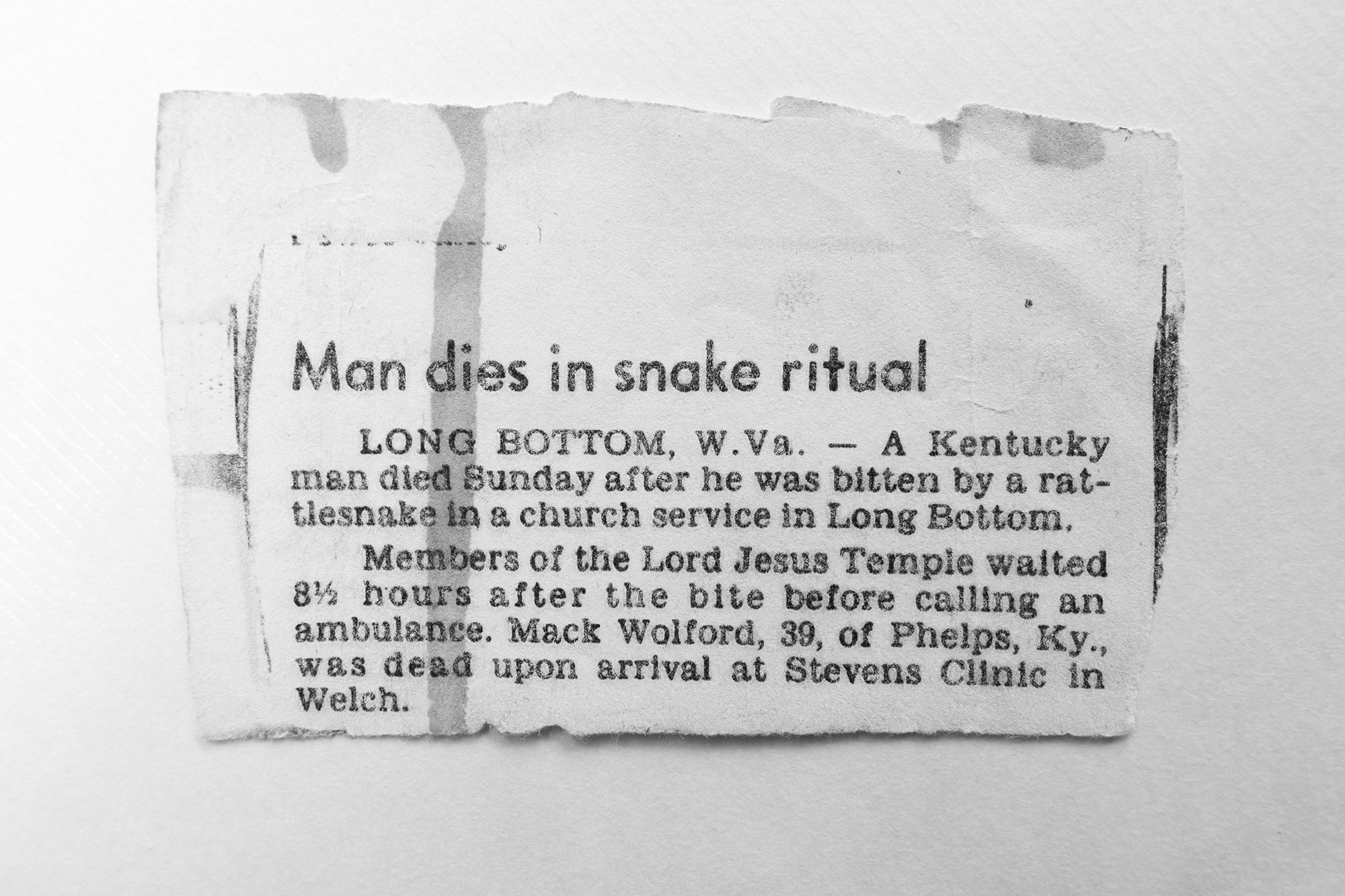
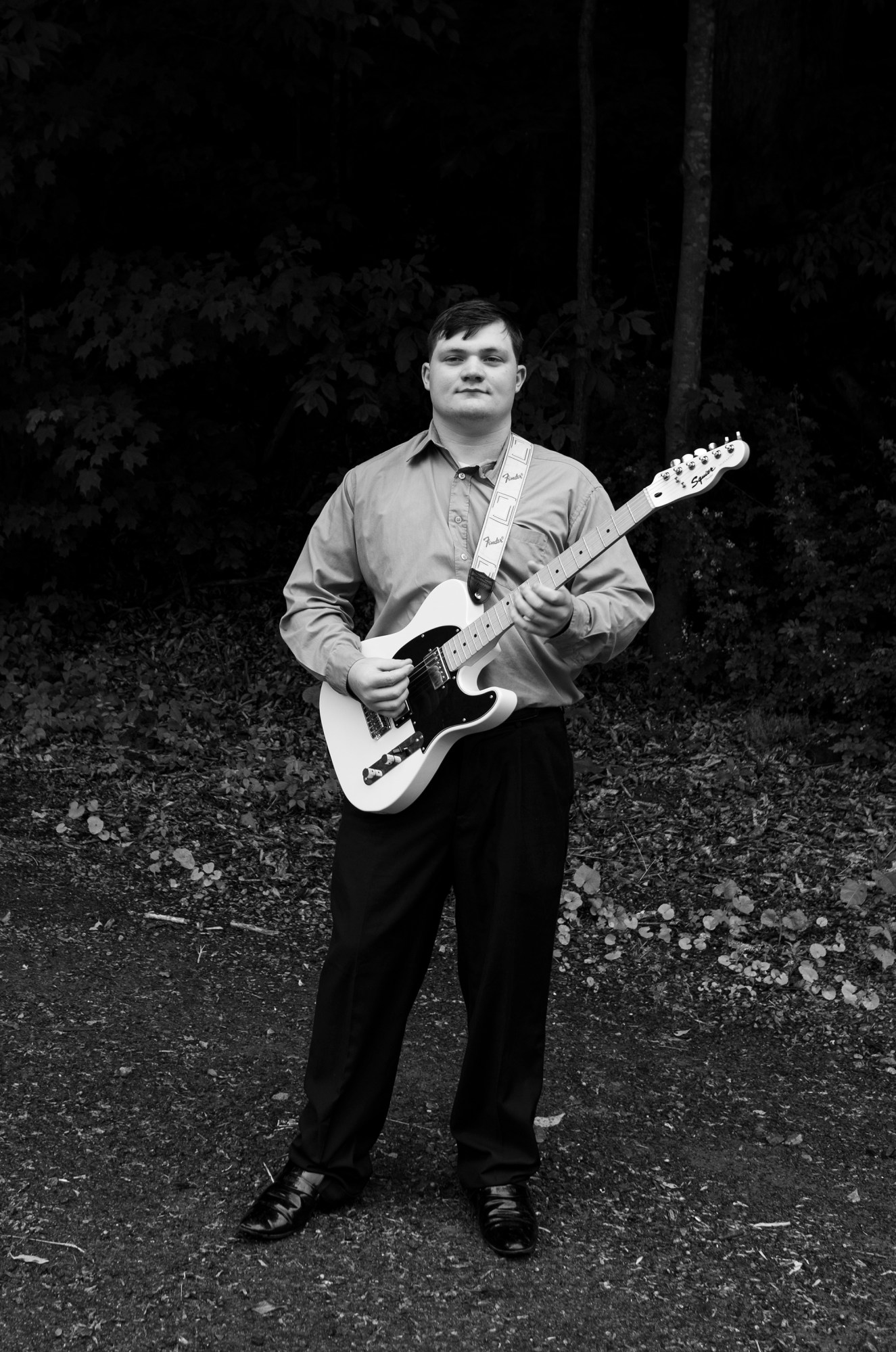
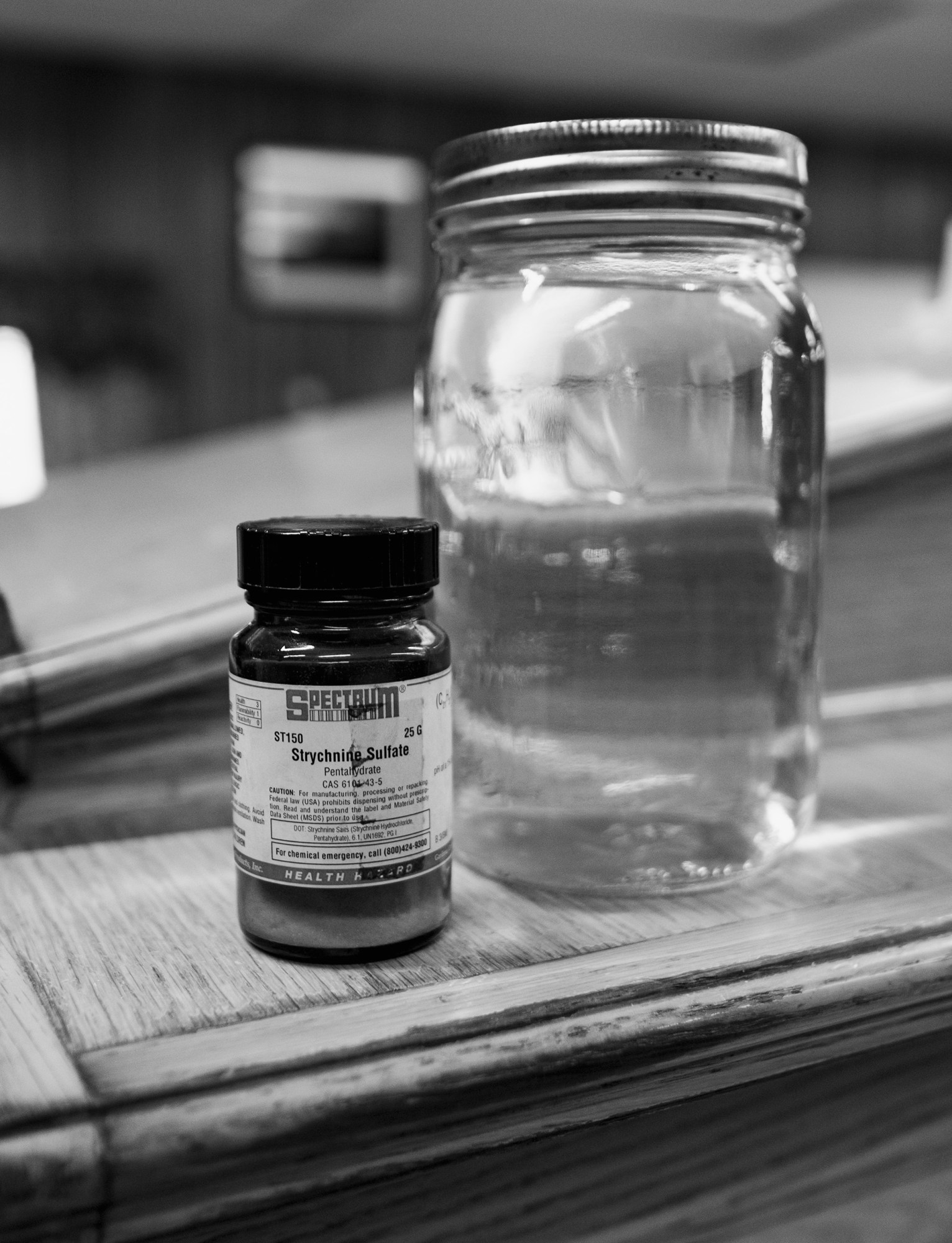
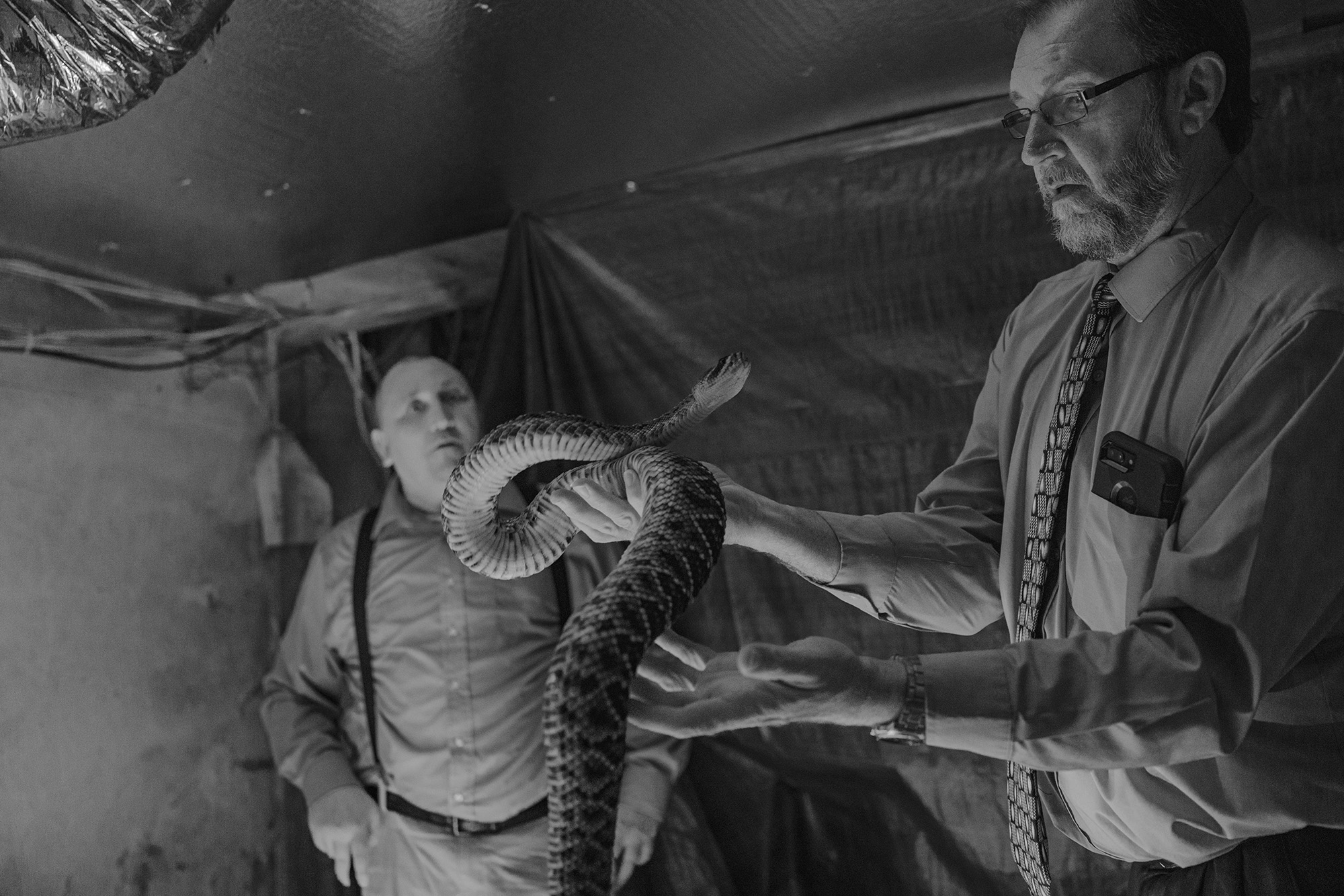
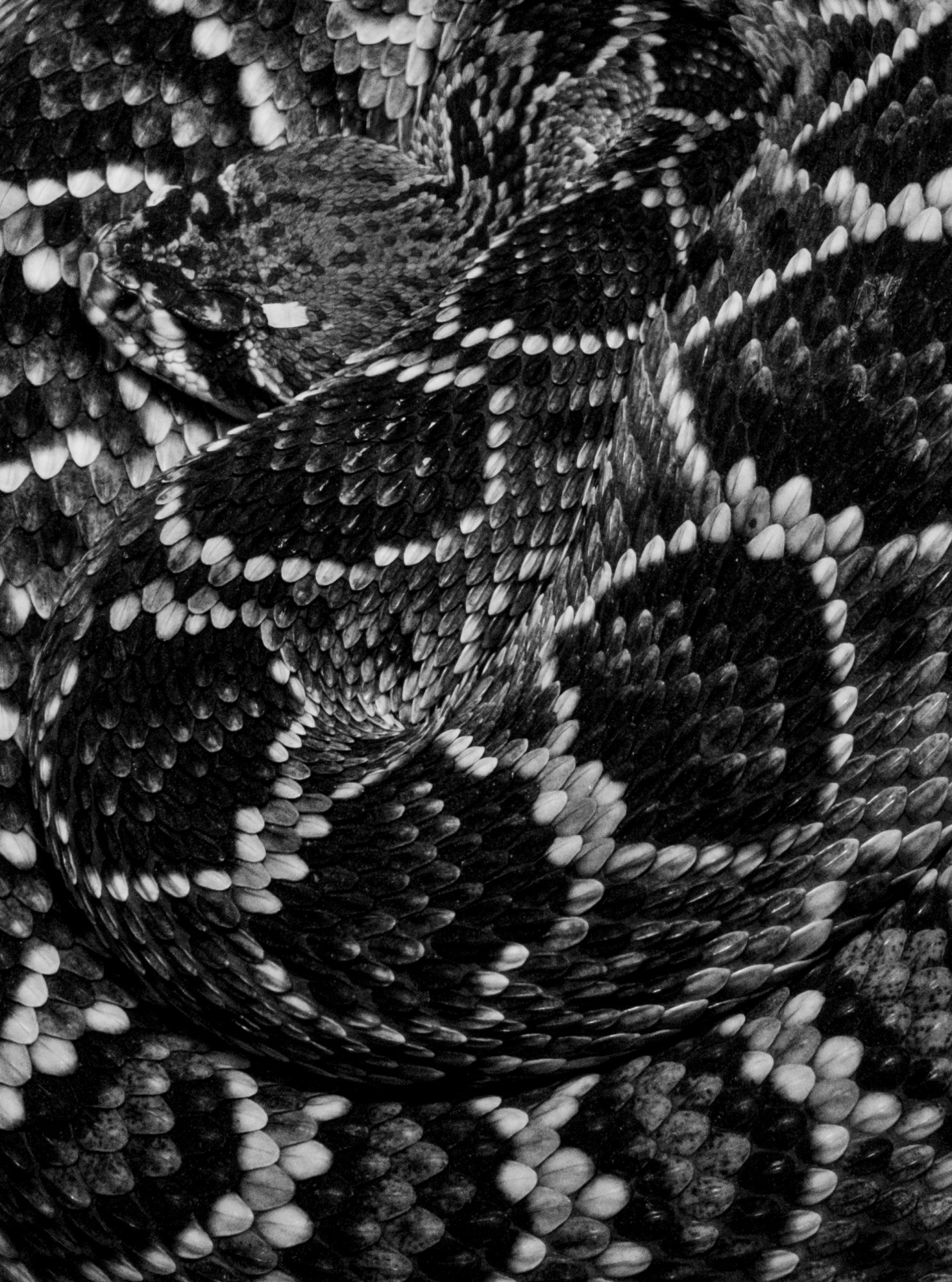
Credits
All images courtesy Robert LeBlanc
